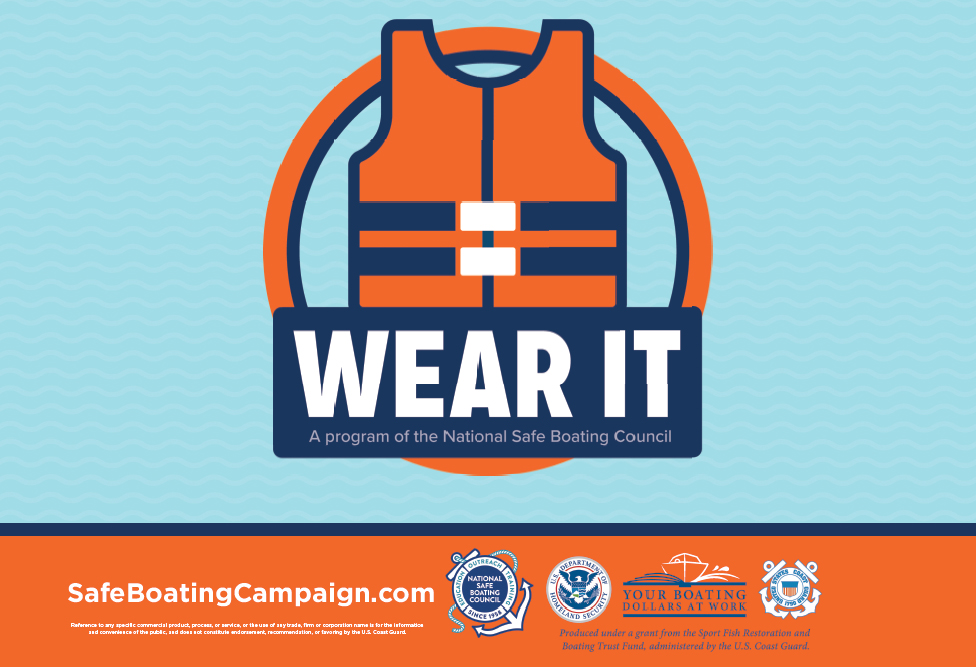Summer is a great time to enjoy local waters. Whether you’re a boater, angler, or water sports enthusiast, please remember to be responsible around the water. May 18-24, 2024 is National Safe Boating Week. The Safe Boating Campaign, led by the National Safe Boating Council, offers these tips for practicing social distancing and safety while boating:
1. Wear a life jacket. No matter what activity you have planned on the water, always remember to wear a life jacket every time you are on the water. Accidents on the water can happen much too fast to reach and put on a stowed life jacket.
2. Make sure your life jacket is U.S. Coast Guard approved, appropriate for your water activity and fits properly. A life jacket that is too large or too small can cause different situational problems.
3. Know state boating laws. Rules and laws can differ from state to state and violations can result in ticketing, fines or jail time.
4. Take a boating safety course. Learn valuable tips that can help save your life in unexpected situations.
5. Make sure your boat is prepared. There are many items that need to be checked and rechecked on any boat. Schedule a Vessel Safety Check with your local U.S. Coast Guard Auxiliary or U.S. Power Squadrons before you hit the water. Every Vessel Safety Check is conducted 100 percent free of charge.
6. Always file a float plan. File a float plan before you leave shore with someone you trust that includes details about the trip, boat, persons, towing or trailer vehicle, communication equipment, and emergency contacts.
7. Check the weather, including the water temperature. Know the latest marine weather forecast prior to going out, and keep a regular check for changing conditions.
8. Don’t drink while you boat. Where the primary cause was known, alcohol was listed as a leading factor in boating-related deaths.
9. Beware of carbon monoxide poisoning. Gasoline-powered engines on boats, including onboard generators, produce carbon monoxide (CO), a colorless and odorless gas that can poison or kill someone who breathes too much of it. Be sure to install and maintain a working CO detector, never block exhaust outlets, and always dock, beach or anchor at least 20 feet away from the nearest boat that is running a generator or engine.
10. Keep in touch. Communication devices can be the most important piece of emergency equipment on board a vessel, especially in case of emergency. Be sure to have and know how to use at least two communication devices that work when wet, such as satellite phones, emergency position indicating radio beacons (EPIRB), VHF radios, and personal locator beacons (PLB).
By following these tips, you can enjoy your boat, the water, sunshine and fresh air responsibly. For additional boating resources and tips, please visit SafeBoatingCampaign.com.




